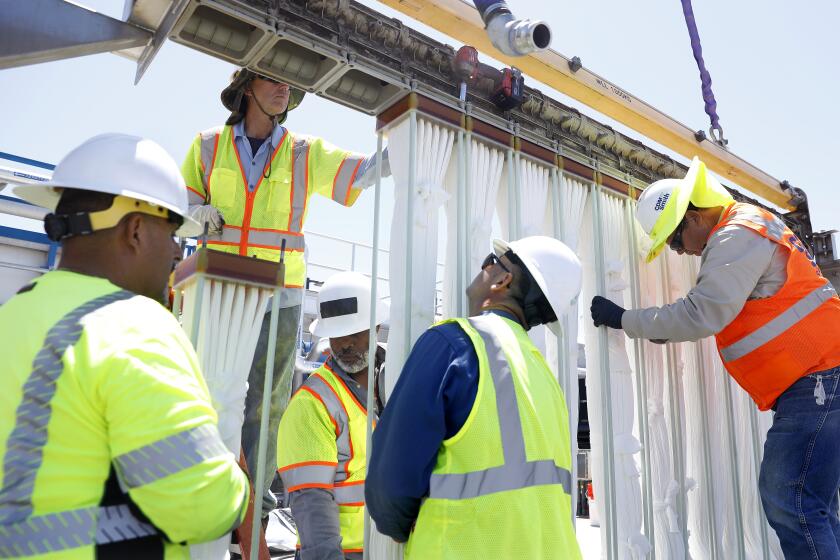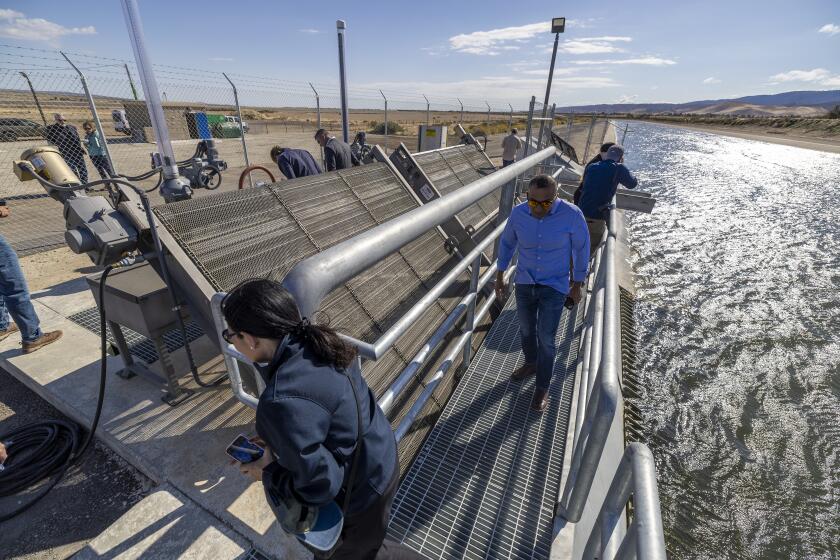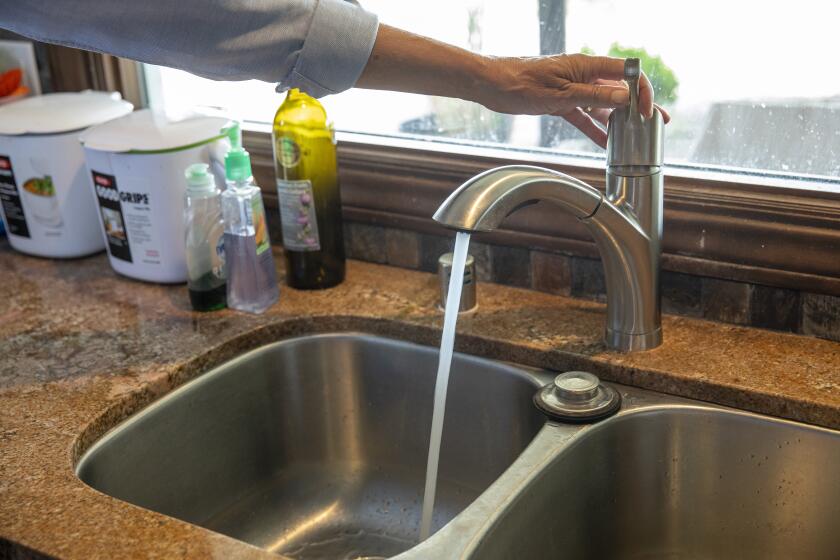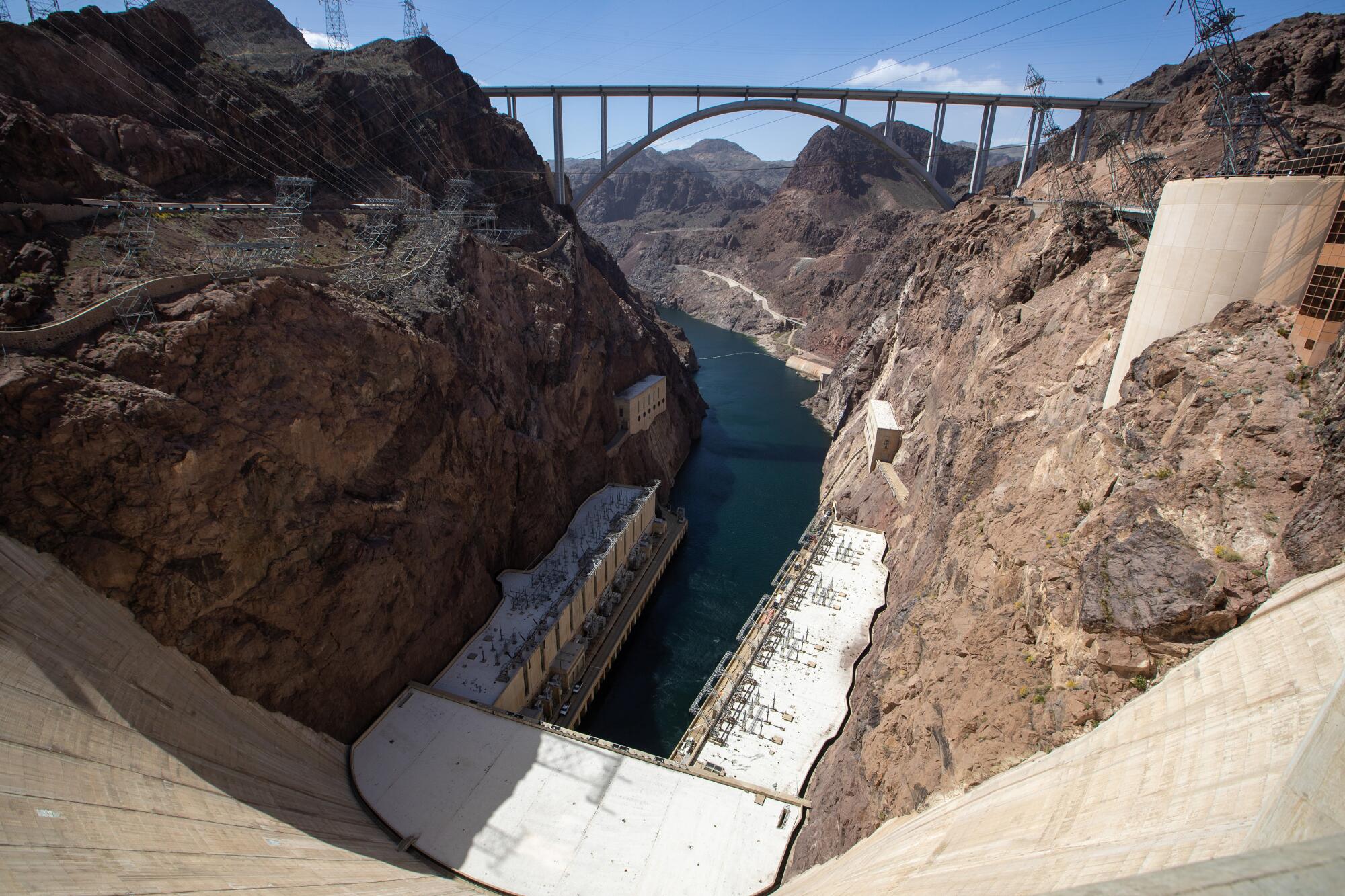
- Share via
The Metropolitan Water District of Southern California has announced that it will increase rates and property taxes throughout the region over the next two years as the state grapples with fundamental changes to its water supply and usage.
District leaders said the increases are necessary to cover the costs of importing and treating water, as well as finance climate change adaptations to infrastructure and make up for declines in revenue due to widespread conservation efforts.
“We’ve been successful in conservation to the point where our sales are declining, and we need to make that up somehow,” MWD Board of Directors Chair Adán Ortega Jr. said. “We’ve made up the revenue and stabilized the past rates with the reserves, and we can’t keep doing that.”
Aggressive and impactful reporting on climate change, the environment, health and science.
The district’s 38-member board voted Tuesday to raise water rates 8.5% in 2025 and an additional 8.5% in 2026. This will increase costs for 26 cities and retail suppliers that receive imported water delivered by the MWD.
The budget adopted by the board also calls for doubling the MWD’s property tax assessment in its six-county area — the first such increase to its ad valorem tax rate in over 30 years.
For a median value home in Los Angeles County, the MWD’s annual property tax bill will increase from $28 to $56; in Orange County, it will increase from $33 to $66 a year.
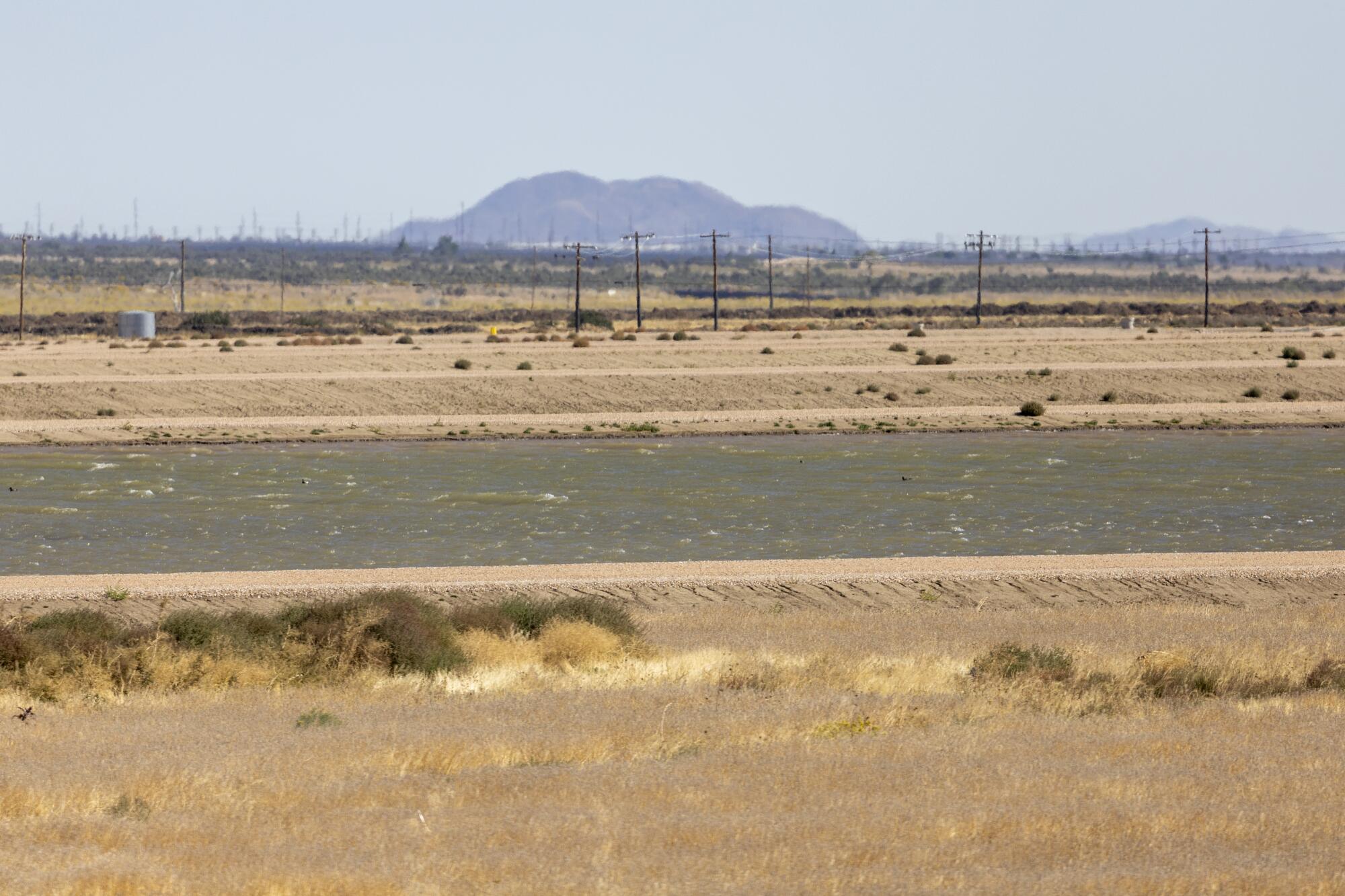
“We understand the impact rate increases can have on businesses and residents, so we have taken great steps to limit our increase as much as possible,” MWD General Manager Adel Hagekhalil said. “The difficult reality is, our costs have risen while revenues have dropped, so we need to take the fiscally responsible step of adjusting our rates.”
Hagekhalil said water sales and revenues declined in part because of the extreme drought from 2020 to 2022. And at the same time, the district’s expenses have increased with inflation.
The MWD is California’s largest urban water district, supplying drinking water to cities and other local suppliers that serve 19 million people in six counties from San Diego to Ventura.
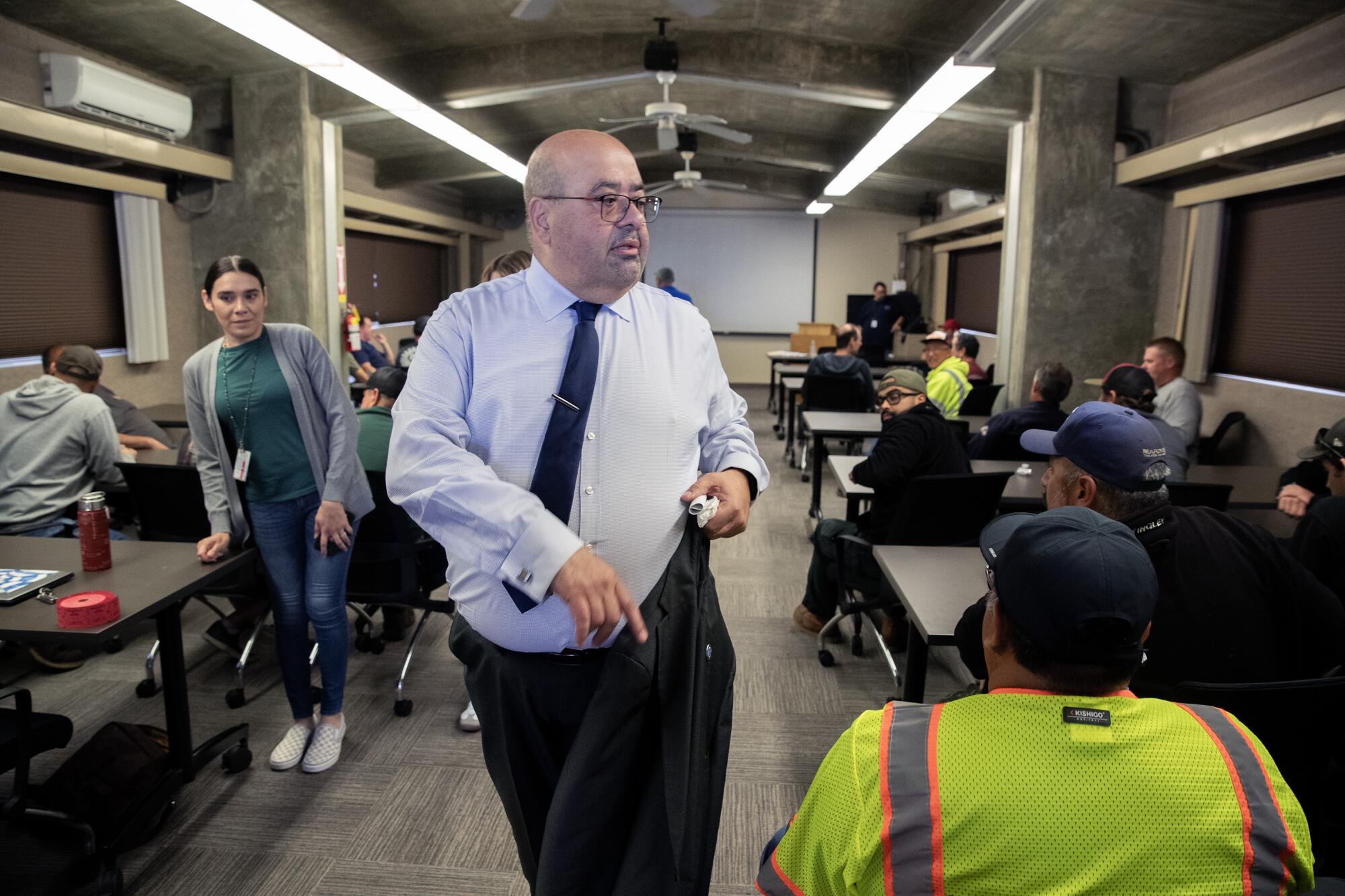
The budget adopted by the board includes $2.4 billion for operations, capital investments and debt service in the next two fiscal years. It also includes nearly $100 million for conservation programs.
Officials said they also made spending cuts to avert larger rate increases.
As part of the budget discussion, the board considered other options that would have involved splitting the increases differently between rates and property taxes. The board is expected to increase the property tax rate, as outlined in the budget, in August.
California is set to approve regulations for transforming wastewater into pure drinking water. Experts say the highly treated water isn’t ‘toilet-to-tap.’
Ortega said this budget approach strikes the right balance and ensures investments that are necessary as water management becomes more challenging.
“It’s the cost of climate change,” Ortega said. “The reason why we have to invest in our water systems is because we have to use our water systems differently with climate change.”

He said that includes adding storage capacity, such as an underground storage facility that opened last year near Lancaster, as well as building interconnections that allow water to be moved where it’s needed during droughts.
“For most residents, it’s probably not on the top of their mind that the water they drink comes from 400 miles away in Northern California, or from over 200 miles away from the Colorado River. But half the water that can be consumed in this region in a given year has to travel that distance,” Ortega said. “You have these costs that remain and escalate. And then you have the complications of climate change that require us to adapt and build the new class of infrastructure that’s required for that adaptation.”
While the budget outlines funding for programs over the next two years, the district’s officials also plan to consider large investments in long-term infrastructure projects as they develop what they call MWD’s Climate Adaptation Master Plan for Water.
“Metropolitan is in a transformational period, facing critical decisions on which long-term projects to invest in to help our region adapt to climate change,” Ortega said. “As we embark on these major changes, this budget provides us the fiscal stability we need for the next two years.”
A new water storage facility in the desert will bank supplies underground for Southern California in an effort to help the region adapt to climate change.
The district has collected property taxes for decades to pay its costs for importing water from Northern California through the State Water Project. Since the last time the district increased its property tax rate in 1990, the rate has decreased over the years.
According to the MWD, the increase in the property tax will amount to an average of $2 to $3 a month for a typical household. The district’s officials said increasing the property tax revenues allowed them to adopt a smaller rate increase than had been initially proposed.
The approach stirred controversy. The board members representing Los Angeles — including Carl E. Douglas, Matt Petersen, Nancy Sutley, Tracy Quinn and Miguel Luna — objected to the increase in the property tax rate and abstained from the vote. They said in a recent letter that “shifting water bill collections onto property taxes will effectively raise the cost of housing for every citizen in the region, especially those in the disadvantaged communities.”
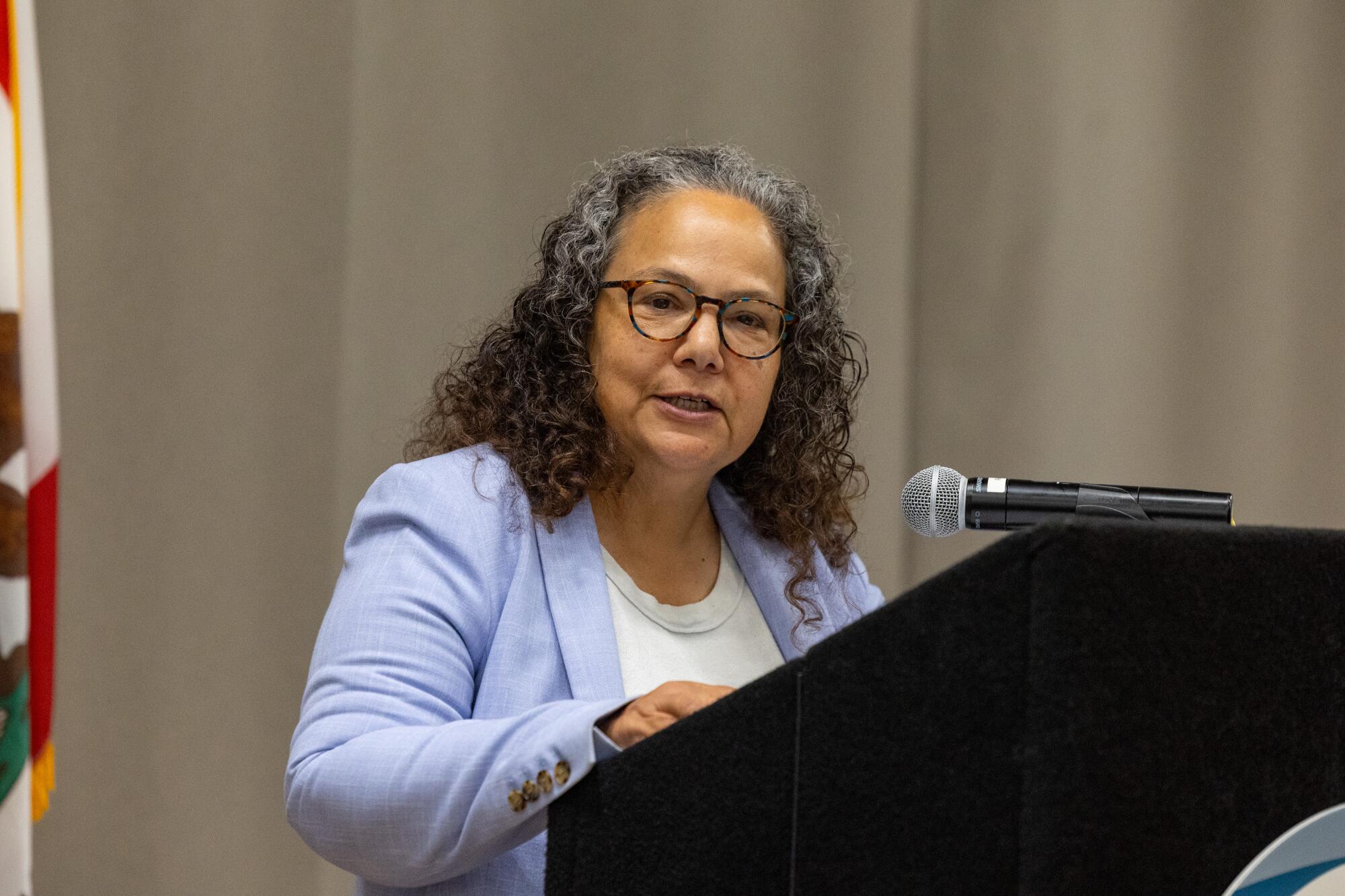
Others spoke against the rate increases. Chris Enegren, the mayor of Moorpark, told the board that the dramatic rate increases are “very problematic for our citizens” and reflect “poor management.”
But the district’s board, which has held four public workshops on budget options this year, voted unanimously to adopt the budget and the rate increases. Six board members abstained.
Bruce Reznik, executive director of LA Waterkeeper, supported the approach.
“Relying a bit more on property tax revenue and a bit less on how much water customers pay per gallon of water is both a more reliable way to generate funds for MWD and a more equitable approach to securing water for Southern California residents,” Reznik said.
He pointed out that currently the district brings in only about 20% of its revenues from fixed sources such as property taxes. Relying this heavily on water sales is problematic, Reznik said, because water use can fluctuate greatly from year to year.
The increase in property taxes will mean a relatively low impact for Southern California families while improving the stability of the district’s revenues, Reznik said.
With water rates rising, many are struggling to pay. A Senate bill would establish a permanent program to help low-income customers who are falling behind.
“Stabilizing revenues will enhance MWD’s ability to invest in conservation and environmentally sound opportunities for storing and generating local water, like through stormwater capture, wastewater recycling and groundwater cleanup,” he said. “These options are more sustainable and more equitable than continuing to rely on water imports.”
Charming Evelyn, chair of the water committee for the Sierra Club’s local chapter, said her group remained neutral about the options that were considered. But she said water affordability is a concern, as well as how the higher costs could affect renters and those on fixed incomes.
“Budgets should never be balanced on the backs of the working class,” Evelyn said, adding that she thinks MWD’s leaders “need to be more prudent in the future.”
Board member Juan Garza, who represents Central Basin Municipal Water District, said before casting his vote in favor of the budget that the district faces difficult decisions about rethinking its approach.
“It’s not a perfect budget, but by no means is our future easy,” Garza said. “I think our business model will have to change, and the sooner that we start adopting that mind-set, the better.”
Toward a more sustainable California
Get Boiling Point, our newsletter exploring climate change, energy and the environment, and become part of the conversation — and the solution.
You may occasionally receive promotional content from the Los Angeles Times.

